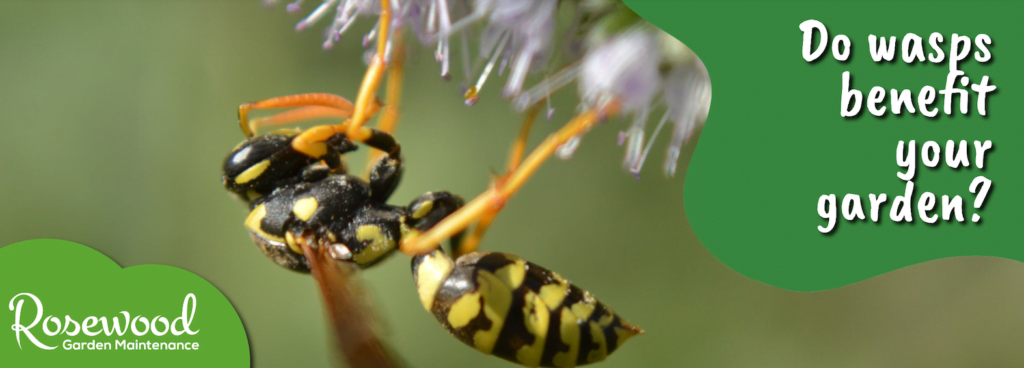
Did you know, there are thousands of species of wasp, over 30,000 in fact! Wasps, although a nuisance, form a vital part of the biodiversity that healthy gardens support. Read on to find out how wasps benefit your garden.
They are natural pollinators
Most people think of bees as pollinators rather than wasps, but both provide a useful amount of pollination. Wasps don’t have as much hair on their bodies as bees so it’s thought that they don’t collect as much pollen to transfer between flowers. While little research on wasp pollination exists, there are some species of orchid that are only pollinated by certain wasps and the fig wasp is also a good example of this.
When pollinating a fig, the female wasp crawls inside through a hole so narrow that she loses her wings in the process and becomes trapped. If the fig is a male, she lays her eggs inside. These hatch into larvae that burrow out, turn into wasps and fly off, carrying fig pollen with them. If the wasp climbs into a female fig, she pollinates it, but cannot lay her eggs and dies.
Don’t worry if you love figs though, there are no wasp remains! The female fig produces an enzyme that digests the wasp completely. Isn’t nature amazing?!


They are great pest controllers
No one wants to discover that wasps have built a nest in your shed, garage, eaves of the house or any other inconvenient location. But if it’s possible to leave the nest alone, you might see the benefits of free garden pest control in the summer months. A single wasp nest can produce hundreds or even thousands of larvae so wasps will seek out flies, aphids, caterpillars and other garden pests to feed to their young. Without the vital ecological role that wasps play in controlling the numbers of crop-eating insects, it’s likely our environment would be full of potential pests.
How to attract the right kind of wasps to your garden
Parasitic wasps are the best kind of wasp for pest control. In fact, when you spray your garden with broad-spectrum insecticides, you may find that the problem gets worse instead of better. That’s because you have killed the parasitic wasps but not the pest that is causing problems!
The range of pests managed by parasitic wasps is nothing short of amazing. They effectively control aphids, scale, whiteflies, sawfly larvae, ants, leaf miners, and several types of caterpillars. They also parasitise the eggs of several insects, including European corn borers, tomato hornworms, codling moths, cabbage loopers, and imported cabbageworms.
You can attract these pest-controlling wasps into your garden by planting species of herbs that supply the nectar and pollen they need. Examples of good flowers and herbs to plant are Queen Anne’s Lace, Dill, Cilantro and Fennel. If you need a helping hand figuring out what to plant and how to plant it, the team at Rosewood Garden Maintenance can help.


Do you have wasps in your garden?
In the United Kingdom, wasp season typically begins in April and subsides in September. A wasp colony is primarily active during the summer months between June and August. Hibernating queens exit a nest within the first two weeks of autumn.
The best way to avoid being stung is to treat wasps with respect. Move calmly and deliberately, give them space to go about their business, and they will generally ignore you. If you are stung and have an extreme reaction, get to A&E quickly to avoid any serious complications.






